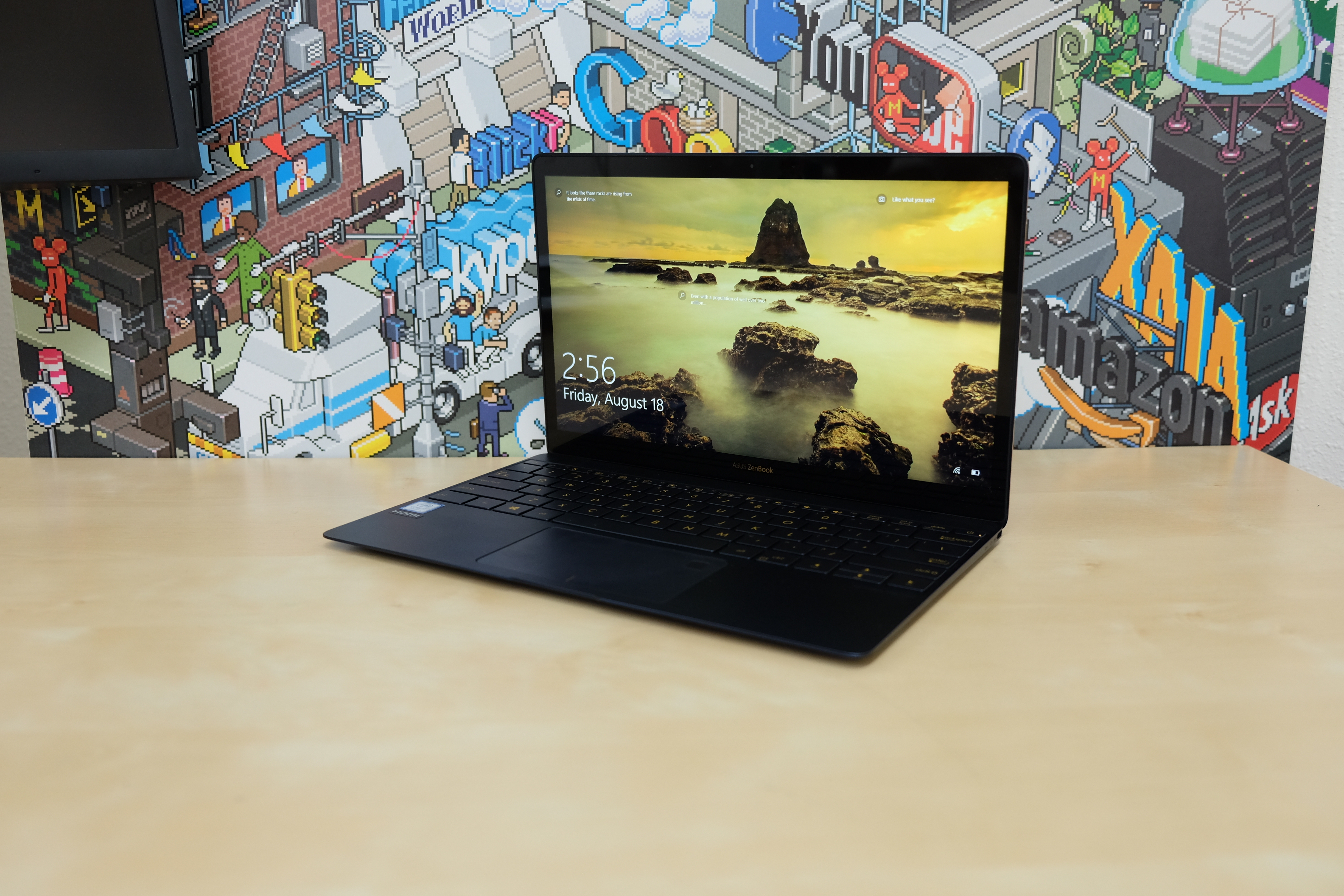Why you can trust TechRadar
The Asus ZenBook 3’s Intel Kaby Lake processor blasted through everything we put in front of it throughout our testing. Multitasking is a non-issue, going from one tab or apps to another with no noticeable slowdown.
Fans, if they were needed, are quiet and not a distraction by any means.
Here’s how the Asus Zenbook 3 performed in our suite of benchmark tests:
3DMark: Sky Diver: 3,689; Fire Strike: 875; Time Spy: 364
Cinebench CPU: 225 points; Graphics: 27 fps
GeekBench: 4,279 (single-core); 8,361 (multi-core)
PCMark 8 (Home Test): 2,859 points
PCMark 8 Battery Life: 3 hours and 11 minutes
Battery Life (TechRadar movie test): 6 hours and 25 minutes
Four Harmon Kardon speakers come equipped on the ZenBook 3. Two are on the top of the device, just above the keyboard, with the other two speakers situated on the bottom of the housing. While they’re lacking a bit in volume, they’re more than enough to listen to music or watch Netflix.
Our test results would put the Asus ZenBook 3 in the same league as the Dell XPS 13 2017, and, in some areas, ahead of it. For instance, the Asus ZenBook 3 shined in both single and multi-core GeekBench tests, but lagged behind the Dell laptop when running 3DMark.
Battery life
One of the compromises typically associated with a laptop of this size is battery life. Asus put enough of a charge in the ZenBook 3’s battery to get for supposedly 9 hours of use, enough to get you through a full work day without charging.
However, our tests found that to not quite be the case. Looping Guardians of the Galaxy at 50% brightness with all unnecessary features (Bluetooth, location, backlit keyboard, etc.) disabled, we ran our movie battery life test twice to confirm the ZenBook 3’s score and ended up with almost 6 hours and 30 minutes – two and a half hours less than promised.
What’s more, the PCMark battery life test ended up running for just over three hours of heavy use. That’s not good, by any measurement.

Reliable fingerprint sensor
Using Windows Hello to log into a Windows 10 laptop is convenient and downright cool. Scanning your eyes or a fingerprint to sign in (or buy something) are popular implementations, with the ZenBook 3 implementing the fingerprint sensor.
Despite our complaints of the sensor’s position on the Zenbook 3, we have to commend the manufacturer on just how precise, reliable and fast this fingerprint scanner is. After teaching the laptop to recognize our fingerprint, it was rare that we would ever receive a prompt saying that our finger wasn’t recognized.
Typically, after opening the lid and placing a finger on the sensor, it took only seconds until the device unlocked, ready for use.

Final verdict
Sitting somewhere in between the MacBook and the XPS 13 in price, the Asus ZenBook 3 is a solid option for anyone wanting an Ultrabook that can easily tackle even some of the more processor-intensive tasks you throw at it.
The Asus ZenBook 3’s display is bright and vivid enough on its own, without tweaking. The lightweight and portable approach Asus took must also be appreciated, and anyone that frequently travels will find this laptop a great device to get some work done while on the road.
Don’t expect all day battery, and don’t be surprised if you find yourself wanting to use an external keyboard. But all things considered, if you can look lives with its flaws, the ZenBook 3 is a slick and powerful laptop that’s ideal to the mass consumer.
Images Credit: TechRadar
